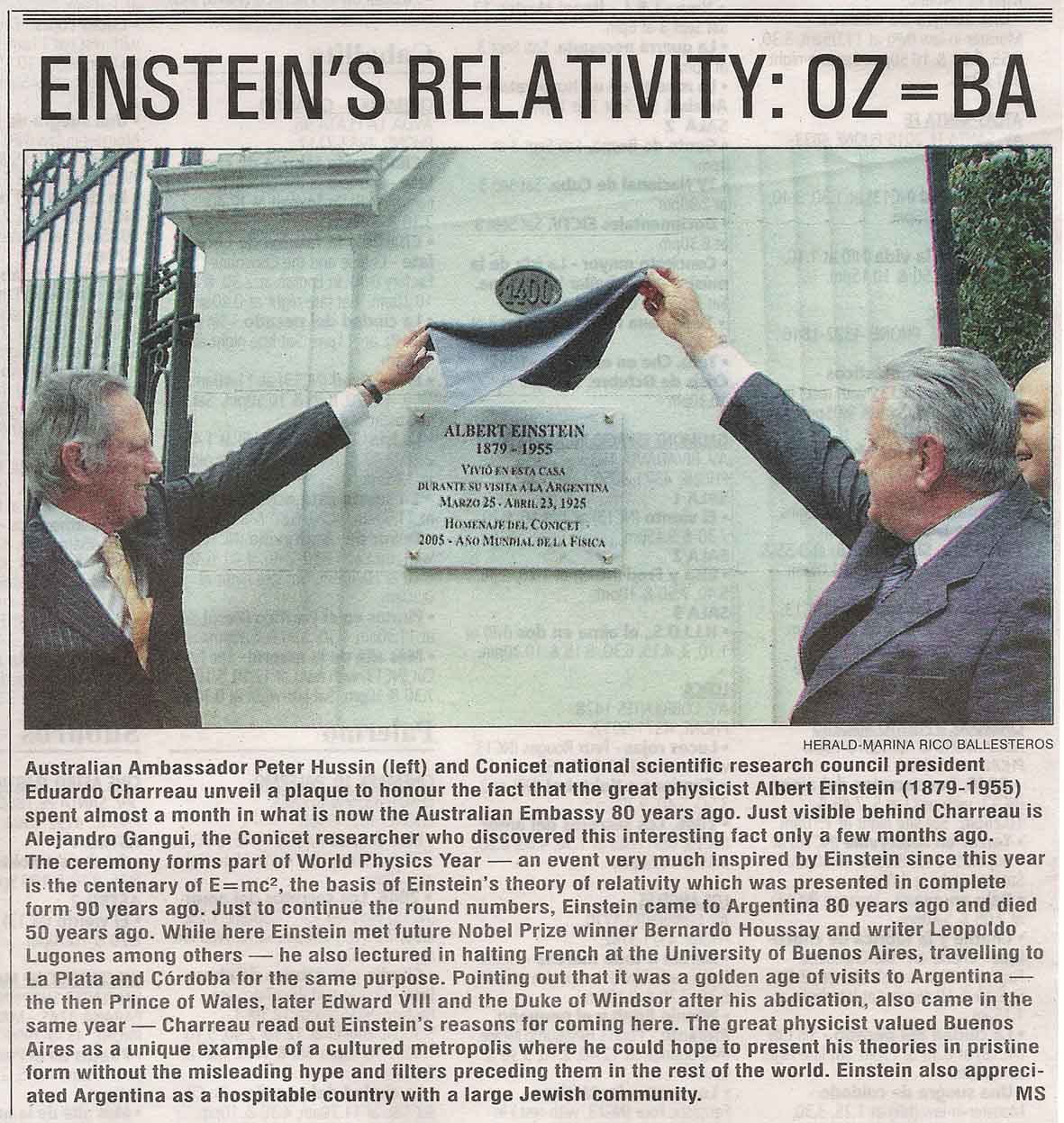
In 1922 the University of Buenos Aires (UBA) Council approved a motion to send an invitation to Albert Einstein to visit Argentina and give a course of lectures on his theory of relativity. The motion was proposed by Jorge Duclout (1856-1927), who had been educated at the Eidgenossische Technische Hochschule, Zurich (ETH). This proposal was the culmination of a series of initiatives of various Argentine intellectuals interested in the theory of relativity. In a very short time Dr. Mauricio Nirenstein (1877-1935), then the university's administrative secretary, fulfilled all the requirements for the university's invitation to be endorsed and delivered to the sage in Berlin. The visit took place three years later, in March-April 1925.
The Argentine press received Einstein with great interest and respect; his early exchanges covered a wide range of topics, including international politics and Jewish matters. Naturally, the journalists were more eager to hear from the eminent pacifist than from the incomprehensible physicist. However, after his initial openness with the press, the situation changed and Einstein restricted his public discourse to topics on theoretical physics, avoiding some controversial political, religious, or philosophical matters that he had freely touched upon in earlier interviews.. [abridged].
No comments:
Post a Comment